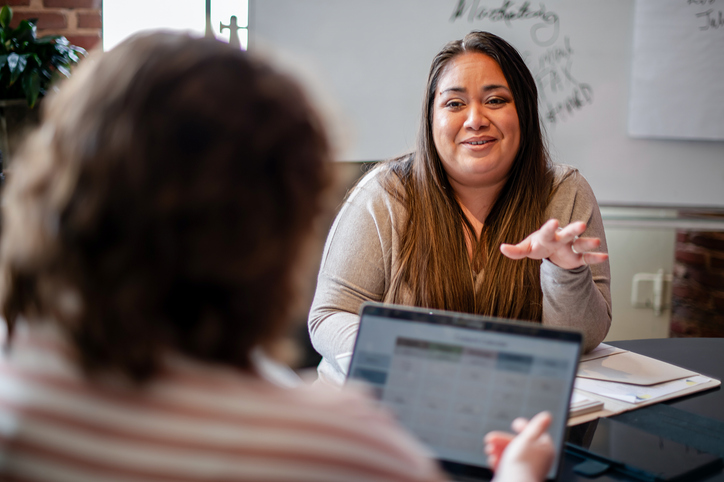Please Tell Me Where the Tipping Point Is.
In late October, I was fortunate enough to participate in TechLearning Magazine's Northeast TechForum in Tarrytown, NY. This marked the fourth year that I've been associated with the conference either as an attendee or a presenter. Each year tells me a dynamically different story about what is happening in our schools here in the Northeast. Each year someone new comes into the conference and turns it on its ear in some capacity.
My presentation, Admin 2.0, was in the afternoon, which gave me all morning to catch up with friends and peek in on some of the sessions that were going on. In each of the sessions, there was a recurrent theme among the crowd: their computers were really small, and a good percentage of the machines lacked full keyboards. The proliferation of eReaders, smartphones, and iPads especially astounded me. Later in the day, as I entered the room where I was slated to present, there they were again: iPads and Kindles, and small little machines stretched across the cloth-covered tables.
Had I missed something? Was there an iPad tree in the lobby that I neglected to pluck? Were my eyes deceiving me, clouded by geeklust for the latest gear from Cupertino?
Indeed, no shrub or gadget-crush was present, they were really everywhere. I left the conference with a head full of steam to find out if the price had dropped or there was a deal to be had for educators. What I found was not a price drop, nor an educator discount, but rather more information to add to the turmoil that's been surrounding the real work I do in my district.
Publishing is upside down right now, in all forms. Magazines and newspapers are struggling to remake themselves into viable options that readers and consumers still feel they need, and education publishers are beginning to feel that pinch as well. In a recent article at Xplana, Rob Reynolds spoke about what he feels are "Nine Important Trends in the Evolution of Digital Textbooks and E-learning Content"
- The increased disaggregation of content and the breaking up of the traditional textbook model
- A proliferation of e-content and e-learning apps that support content disaggregation and new product models
- A merging of the current rental market and the e-textbook market
- A wide range of license/subscription models designed to respond to consumer demands around price and ownership
- The growth of Open Education Resource (OER) repositories
- The development of a common XML format for e-textbooks, shared by all publishers and educational technology players
- The importance of devices and branded devices
- The development of e-commerce and new product ecosystems that challenge the traditional college bookstore
- A move from evolution to innovation and revolution
For those of us in K-12 education, the shift to eBooks or iPads or any straying from our traditional reliance on textbook publishers is cause for alarm--not in the sense that we don't welcome them, but in the sense that we have budgets due (in New Jersey they are due really soon). So what I want to know, and I want someone out on the internets to tell me is have I missed the tipping point? When I look at the needs of my departments this year, should I be looking away from the reliance on paperbacks and textbooks, tradition be damned? Or is it still too early? If I really buy into what Reynolds is talking about, or what Lisa wrote about just a few days ago, why would I waste one more taxpayer dollar on a medium that will soon be outplayed by really, I mean really, inexpensive technology and distribution systems?
This situation, as I've described it, leaves a lot to be considered in terms of both the physical infrastructure (is your building equipped with universal wireless access for students and faculty to download all of these snazzy eBooks and apps), and intellectual infrastructure (is your staff and school community ready to take the leap into what many traditionalists--look at the comments on Lisa's last post--would believe is the great demise of the American attention span).
Tools and ideas to transform education. Sign up below.
Just for giggles, before I sat down to write this initial idea down after TechForum, I called up Cushing Academy. Remember them? The private school that cleared out much of its book collection in its library in favor of Kindles? A few quick stats:
- 100 Kindles available to students
- only three ever gave them issues and had to be sent back
- they can't keep them out of the hands of students
- titles are constantly added via multiple school-based Amazon accounts
- they don't regret the decision (at least the librarian I spoke to).
Something to think about as we all build our budgets--is it time to make the switch?
